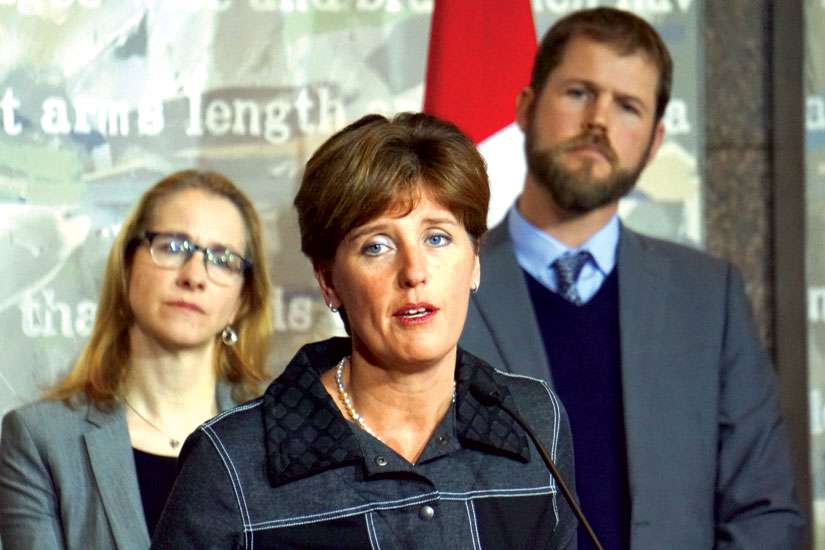Out of a disappointing $12 million raised since September, the Canadian Catholic Organization for Development and Peace, the Catholic Near East Welfare Association and Aid to the Church in Need have raised $3.3 million that is eligible for federal government matching dollars.
The federal government originally pledged to match donations for Syria between Sept. 1 and Dec. 31, up to a limit of $100 million.
With donations lagging, Ottawa has extended the deadline to Feb. 29.
“Your support over the coming months will be crucial,” International Development Minister Marie-Claude Bibeau told a Jan. 7 news conference in Ottawa to relaunch the Syria Emergency Relief Fund.
That message was echoed by David Leduc, executive director of Development and Peace.
“The message the minister and all of our organizations were hopefully sending today is to remember the refugees will keep coming and the situation will continue to get worse if we don’t also contribute significant resources and efforts to resolve the conflict and bring aid to those who need it most on the ground at the moment,” he said.
News of the deadline extension came as images of emaciated and starving children were released from Madaya, a city under siege by the Syrian government. Carl Hétu, national director of the Catholic Near East Welfare Society (CNEWA) Canada, has been warning of the danger of starvation for some time.
“Famine has now become a tool of war for the last two or three years,” he said.
The television pictures have exposed how “food is used as a weapon, in this case starving an entire city.”
Three Catholic agencies eligible to collect government-matched donations were urged by the Canadian Conference of Catholic Bishops to co-ordinate their fundraising efforts. So far, Aid to the Church in need has raised $410,000, CNEWA $800,000 and Development and Peace $2.1 million, all eligible for federal government matching.
In the September to December period, Development and Peace raised another $700,000 for Middle East projects that is ineligible for matching. Prior to the matching fund program, Development and Peace had raised $3 million for Syria between January 2013 and August 2015.
“The idea was not to have common projects, but to have a common appeal,” said Aid to the Church in Need Canada’s national director Marie-Claude Lalonde.
The three organizations have differing priorities in Middle East programming, but they all have local partners inside Syria and serving refugees in surrounding countries.
CNEWA recently teamed up with Development and Peace to deliver $500,000 in federal funding to the Sisters of the Good Shepherd in northern Lebanon. The sisters, long-time partners with CNEWA, helped families in informal refugee camps and villages in the Beqaa Valley get ready for winter. CNEWA needed Development and Peace’s help to apply for the grant because it has yet to receive formal standing as an accredited agency with Global Affairs Canada — previously known as Department of Foreign Affairs, Trade and Development.
It’s not surprising that overall donations to help Syrians in the Middle East have been modest, said Hétu.
“For five years, people have been giving for Syria and now there’s donor fatigue, which is understandable,” Hétu said.
There has also been such heavy emphasis on aid for the 35,000 Syrian refugees coming to Canada this year that aid to Syria’s seven million internally displaced people and 4.2 million refugees in the surrounding region has received little attention, he said.
“This ($12 million) is a fraction of what was given for Haiti and the Philippines,” noted Canadian Foodgrains Bank spokesman John Longhurst. “(But) this is not unusual. Slow-onset or prolonged disasters (like droughts or hunger due to conflict) are much harder to raise funds for.”
Foodgrains, a frequent partner with Development and Peace on issues of hunger, has raised $140,536.96 eligible for matching funds. Despite its low fundraising totals, it has leveraged its relationship with Global Affairs Canada and its expertise in food and agriculture to launch a large suite of programs with federal government backing. Over $30 million in Foodgrains assistance has gone to Syria, Lebanon and Jordan since 2012.
(With files from Deborah Gyapong in Ottawa.)


